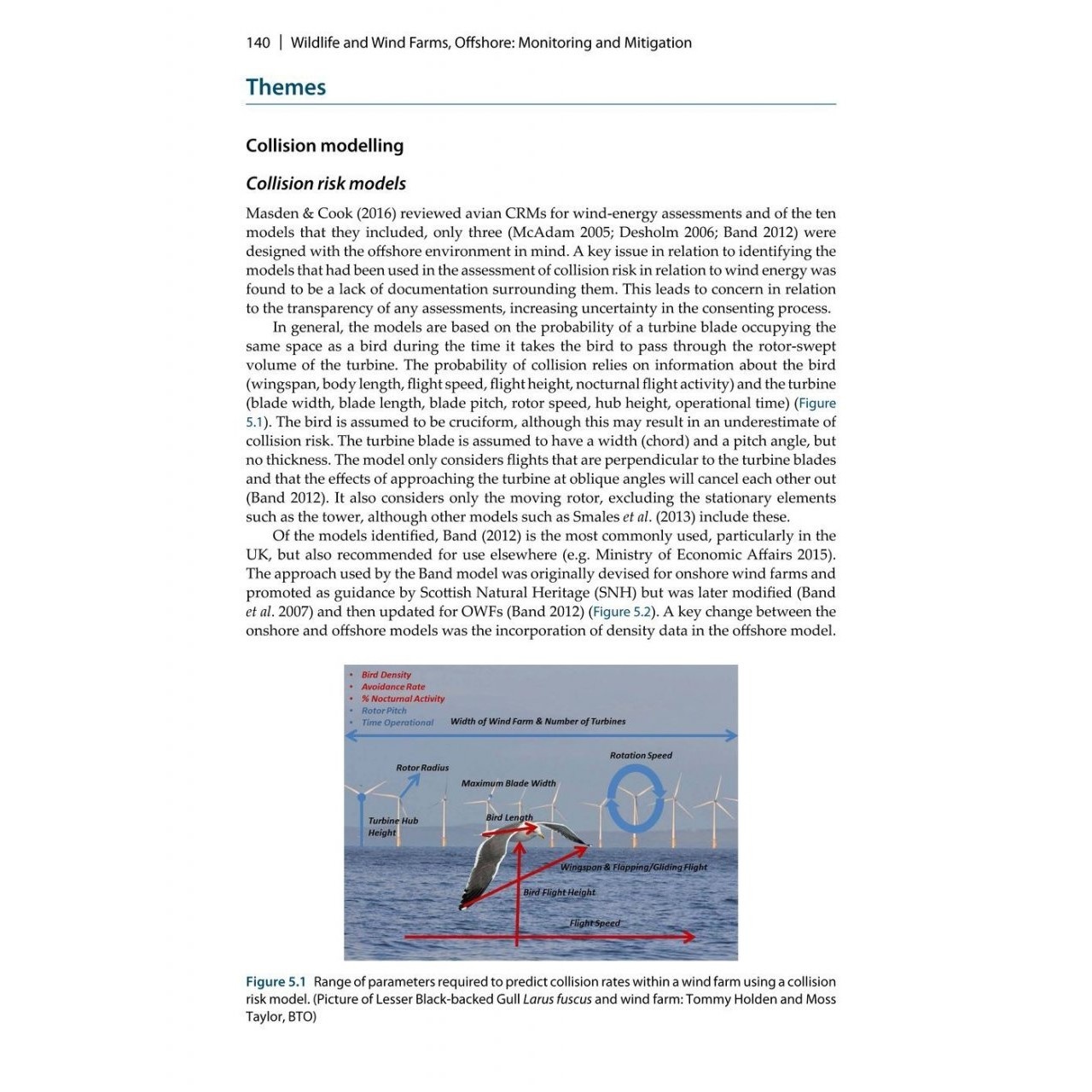| Serie | Conservation Handbooks |
| Autor | Martin R. Perrow |
| Sprache | Englisch |
| ISBN | 9781784271312 |
| Verlag | Pelagic Publishing |
| Seiten | 330 |
| Größe | 270 x 144 mm |
| Format | Taschenbuch |
| Bilder | Figuren und Tabellen |
| Erscheinungsjahr | 2019 |
Wind farms are an essential component of global renewable energy policy and the action to limit the effects of climate change. There is, however, considerable concern over the impacts of wind farms on wildlife, leading to a wide range of research and monitoring studies, a growing body of literature and several international conferences on the topic.
This unique multi-volume work provides a comprehensive overview of the interactions between wind farms and wildlife.
Volume 4 provides a state-of-the-science guide to monitoring and mitigation to minimise or even eliminate impacts on wildlife from offshore wind farms. The survey and monitoring section includes detailed chapters on fish and invertebrate communities, marine mammals and seabirds, and a chapter dedicated to the use of tracking technology applied to birds. The section continues with a chapter on collision risk and population modelling that underpins much current impact assessment, and a chapter detailing how collision risk for birds and bats may be monitored at sea. The mitigation section comprises chapters outlining mitigation options and strategies for birds and bats, and how to mitigate the effects of noise, especially during construction, on marine mammals and fish. A chapter on perspectives on marine spatial planning as applied to wind farms concludes the volume.
The authors have been carefully selected from across the globe from the large number of academics, consultants and practitioners now engaged in wind farm studies, for their influential contribution to the science. Edited by Martin Perrow and with contributions by over 40 leading researchers including: Aonghais Cook, Thomas Dahlgren, Johann Köppel, Meike Scheidat, Henrik Skov, Chris Thaxter & Frank Thomsen. The authors represent a wide range of organisations and institutions including the Universities of Gothenberg, Ghent, Highlands & Islands and Wageningen, Chalmers University of Technology and Technical University of Berlin, British Trust for Ornithology, The Carbon Trust, Institute of Avian Research Vogelwarte Helgoland, Institute for Applied Ecosystem Research (IfAÖ), Norwegian Institute for Nature Research (NINA) and Sea Mammal Research Unit (SMRU); as well as several leading consultancies.
Each chapter includes informative figures, tables, photographs and detailed case studies. Several of the latter are produced stand-alone from invited specialists to ensure geographic spread and to showcase exciting new research.
This book is designed as the definitive guide on the topic for practitioners, researchers, managers and planners as well as students in higher education engaged in studies of the environment, ecology, climate change, conservation and impact assessment.























